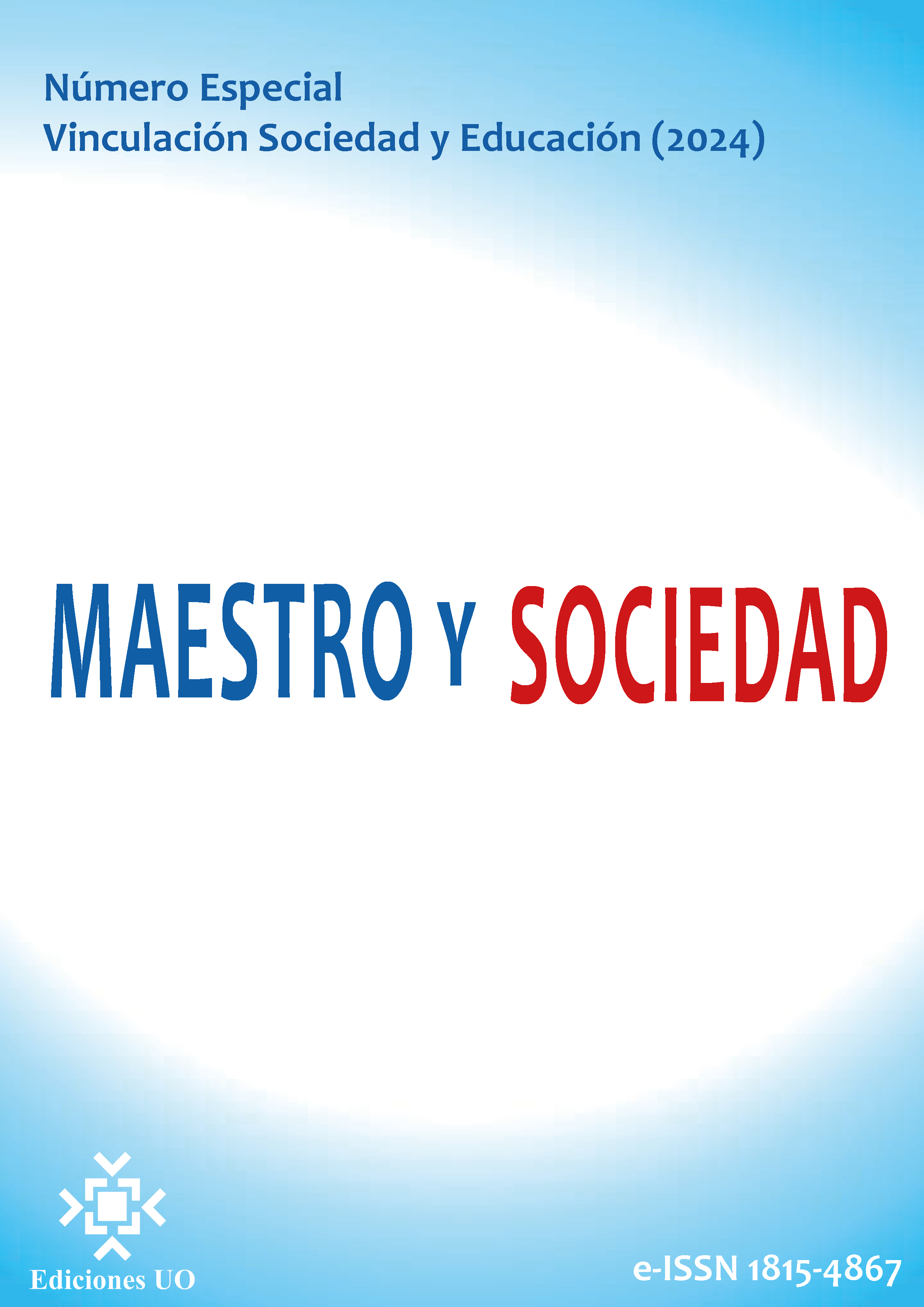Ignorância, ocultação e reconhecimento dos direitos das pessoas LGBTI desde perspectivas éticas e teorias de direitos humanos: um olhar sobre a realidade da discriminação, exclusão e violência no Equador
Palavras-chave:
Direitos humanos, discriminação, LGBTI, perspectivas éticas, violênciaResumo
Introdução: O desconhecimento e a ocultação das pessoas LGBTI desencadeou processos para proteger e garantir os direitos da população LGBTI, com o objetivo de reconhecer os seus direitos e erradicar a discriminação, a exclusão e a violência contra a diversidade. Objetivo: A pesquisa revelará a situação de discriminação, exclusão e violência contra a população LGBTI equatoriana, o marco nacional e internacional para a proteção dos direitos das pessoas LGBTI, as perspectivas éticas da conquista e as teorias, princípios e características dos direitos humanos dos direitos humanos que influenciaram o desconhecimento, a ocultação e o reconhecimento de direitos. Materiais e métodos: A pesquisa é descritiva, utiliza o método comparativo descritivo com abordagem qualitativa e modalidade jurisprudencial dogmática, além da técnica de análise e vinculação dos dados coletados nas entrevistas. Resultados: No Equador, 50,5% da população LGBTI foi discriminada em espaços privados e 55,8% em espaços públicos; 71,4% foram excluídos em espaços privados e 60,8% em espaços públicos; 52,1% foram vítimas de violência em espaços privados e 65,6% em espaços públicos. Discussão: Centra a discussão no desenvolvimento do conhecimento ético e teórico dos direitos humanos que tem justificado o desconhecimento, a ocultação e o reconhecimento dos direitos das pessoas LGBTI. Conclusões: A pesquisa conclui analisando a ética e as teorias dos direitos humanos que têm servido de justificativa para a naturalização da desigualdade, do desconhecimento e do reconhecimento tardio dos direitos humanos da população LGBTI nas regulamentações nacionais e internacionais.Referências
Asamblea General de la Organización de las Naciones Unidas. (1966, 16 de diciembre). Pacto Internacional de Derechos Civiles y Políticos de 1966. Resolución n. 2200 A (XXI). https://www.ohchr.org/es/instruments-mechanisms/instruments/international-covenant-civil-and-political-rights
Asamblea General de la Organización de las Naciones Unidas. (1979, 18 de diciembre). Convención sobre la eliminación de todas las formas de discriminación contra la mujer de 1979. Resolución n. 34/180. https://www.ohchr.org/es/instruments-mechanisms/instruments/convention-elimination-all-forms-discrimination-against-women
Asamblea Nacional del Ecuador. (2008, 20 de octubre). Constitución de la República del Ecuador del 2008. Registro Oficial n. 449.https://www.oas.org/juridico/pdfs/mesicic4_ecu_const.pdf
Asamblea Nacional del Ecuador. (2014, 10 de febrero). Código Orgánico Integral Penal del 2014. Registro Oficial n. 180. http://esacc.corteconstitucional.gob.ec/storage/api/v1/10_DWL_FL/eyJjYXJwZXRhIjoicm8iLCJ1dWlkIjoiMjkwYzMxODUtNTY0OC00MzNjLTk1ZDEtZDg0NjY1NDc5NWI0LnBkZiJ9
Ávila, R. (2012). Los derechos y sus garantías ensayos críticos. Corte Constitucional. (Original publicado en 2012).
Bobbio, N. (2000). Igualdad y libertad. Paidós Ibérica. (Original publicado en 2000).
Congreso Nacional del Ecuador. (1830, 23 de septiembre). Constitución del Estado del Ecuador de 1830. https://www.cancilleria.gob.ec/wp-content/uploads/2013/06/constitucion_1830.pdf
Corte Constitucional de la República de Colombia. (2002). Contenido de la expresión dignidad humana. https://www.corteconstitucional.gov.co/relatoria/2002/T-881-02.htm
Ecuador. Código Orgánico Integral Penal. Registro Oficial 180, Suplemento, 10 de febrero de 2014.b
Facio, A. (2005). Feminismo, género y patriarcado. Revista Enseñanza del Derecho de Buenos Aires, 259-294. https://revistas-colaboracion.juridicas.unam.mx/index.php/revista-ensenianza-derecho/article/viewFile/33861/30820
Herrera, J. (2008). La reinvención de los derechos humanos. Atrapasueños. (Original publicado en 2008).
Instituto Nacional de Estadísticas y Censos. (2013). Estudio de caso sobre condiciones de vida, inclusión social y cumplimiento de derechos humanos de la población LGBTI en el Ecuador. COMISIÓN DE TRANSICIÓN PARA LA DEFINICIÓN DE LA INSTITUCIONALIDAD PÚBLICA QUE GARANTICE LA IGUALDAD ENTRE HOMBRES Y MUJERES (CDT). https://www.ecuadorencifras.gob.ec/documentos/web-inec/Estadisticas_Sociales/LGBTI/Analisis_situacion_LGBTI.pdf
Marlasca López, A. (1998). Fundamentación Filosófica de los derechos humanos. Revista Filosofía Universidad Costa Rica, 1-18. https://inif.ucr.ac.cr/wp-content/uploads/2022/05/Vol.%20XXXVI/90/Fundamentacion%20Filosofica%20de%20los%20derechos%20humanos.pdf
Mora Rodríguez, L. (2012). Ética y alteridad: en-cubrimiento y reconocimiento en la conquista de América. Revista Filosofía Universidad Costa Rica, 53-63. https://revistas.ucr.ac.cr/index.php/filosofia/article/view/7308/6981
Organización de Estados Americanos. (1969, 22 de noviembre). Convención Americana sobre Derechos Humanos de 1969. Gaceta Oficial n. 9460. https://www.oas.org/dil/esp/1969_Convenci%C3%B3n_Americana_sobre_Derechos_Humanos.pdf
Vásquez, L. (2011) Los principios de universalidad, interdependencia, indivisibilidad y progresividad. Apuntes para su aplicación práctica. Revista Jurídica del Instituto de Investigaciones de la UNAM, 135-165. https://archivos.juridicas.unam.mx/www/bjv/libros/7/3033/7.pdf
Publicado
Como Citar
Edição
Seção
Licença
Copyright (c) 2024 Gabriela Dennice Sánchez Velásquez

Este trabalho está licenciado sob uma licença Creative Commons Attribution-NonCommercial-NoDerivatives 4.0 International License.
Esta revista proporciona un acceso abierto inmediato a su contenido, basado en el principio de que ofrecer al público un acceso libre a las investigaciones ayuda a un mayor intercambio global de conocimiento. Cada autor es responsable del contenido de cada uno de sus artículos. Los artículos pueden ser inéditos o estar disponibles previamente en servidores de preprints reconocidos por la revista. Sin embargo, no se permite la duplicación de la publicación o traducción de un artículo ya publicado en otra revista o como capítulo de un libro.
This journal provides immediate open access to its content, based on the principle that providing the public with free access to research supports a greater global exchange of knowledge. Each author is responsible for the content of each of their articles. Articles may be previously unpublished or available on preprint servers recognized by the journal. However, duplication of publication or translation of an article already published in another journal or as a book chapter is not permitted.
Esta revista oferece acesso aberto imediato ao seu conteúdo, com base no princípio de que oferecer ao público acesso gratuito à pesquisa contribui para um maior intercâmbio global de conhecimento. Cada autor é responsável pelo conteúdo de cada um de seus artigos. Os artigos poderão ser inéditos ou estar previamente disponíveis em servidores de preprints reconhecidos pela revista. No entanto, não é permitida a duplicação de publicação ou tradução de artigo já publicado em outro periódico ou como capítulo de livro.



























 Universidad de Oriente
Universidad de Oriente 